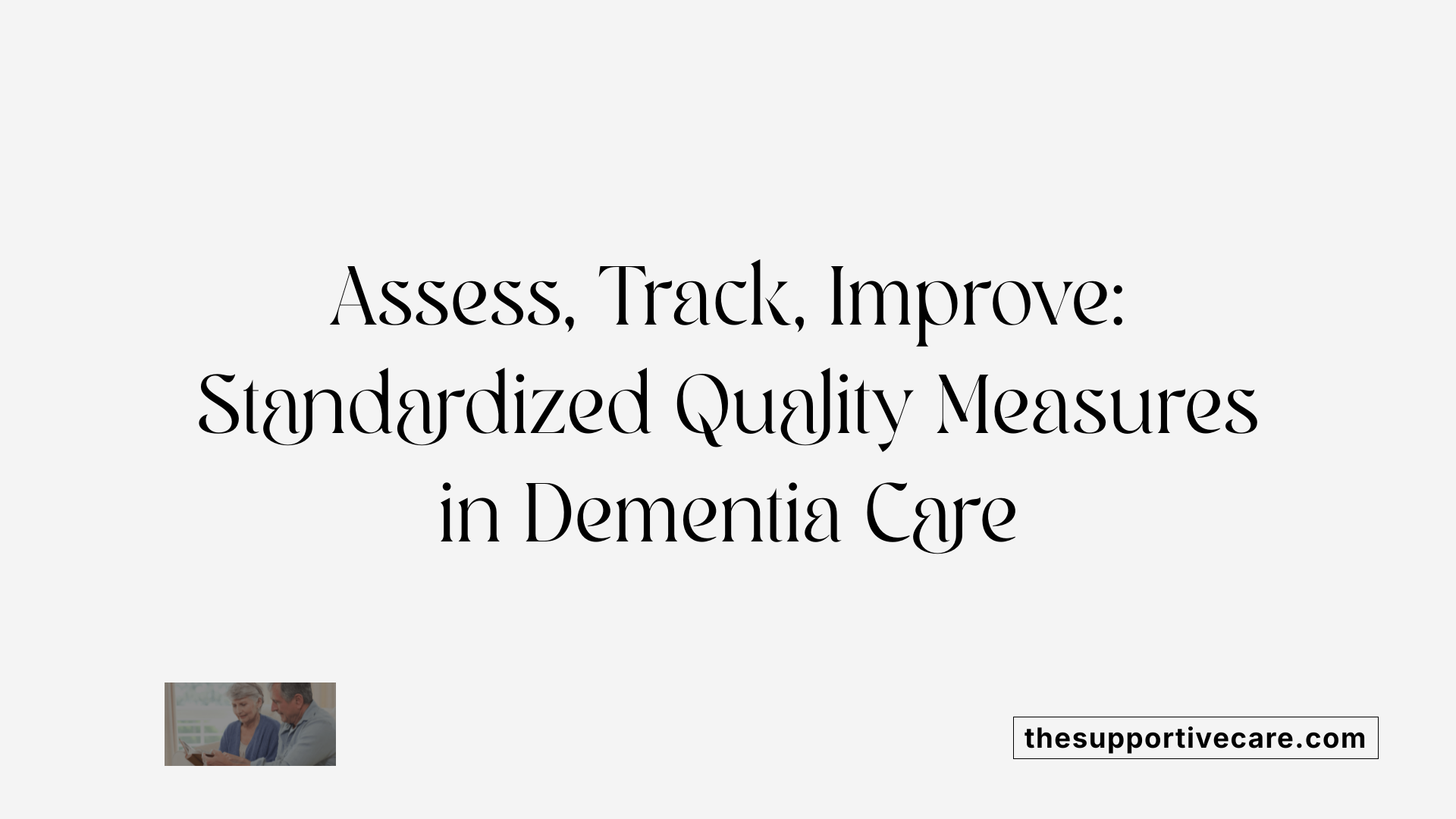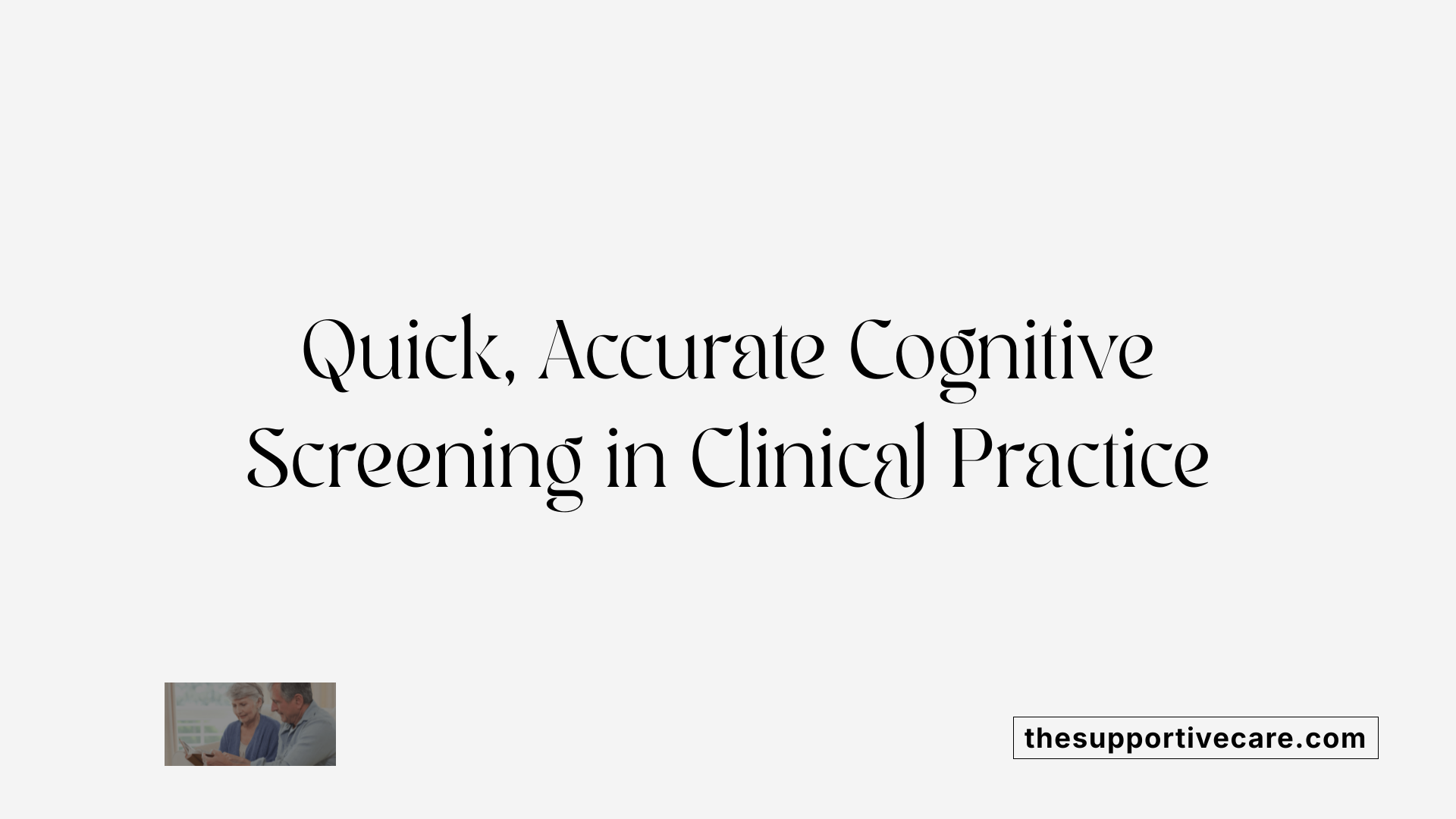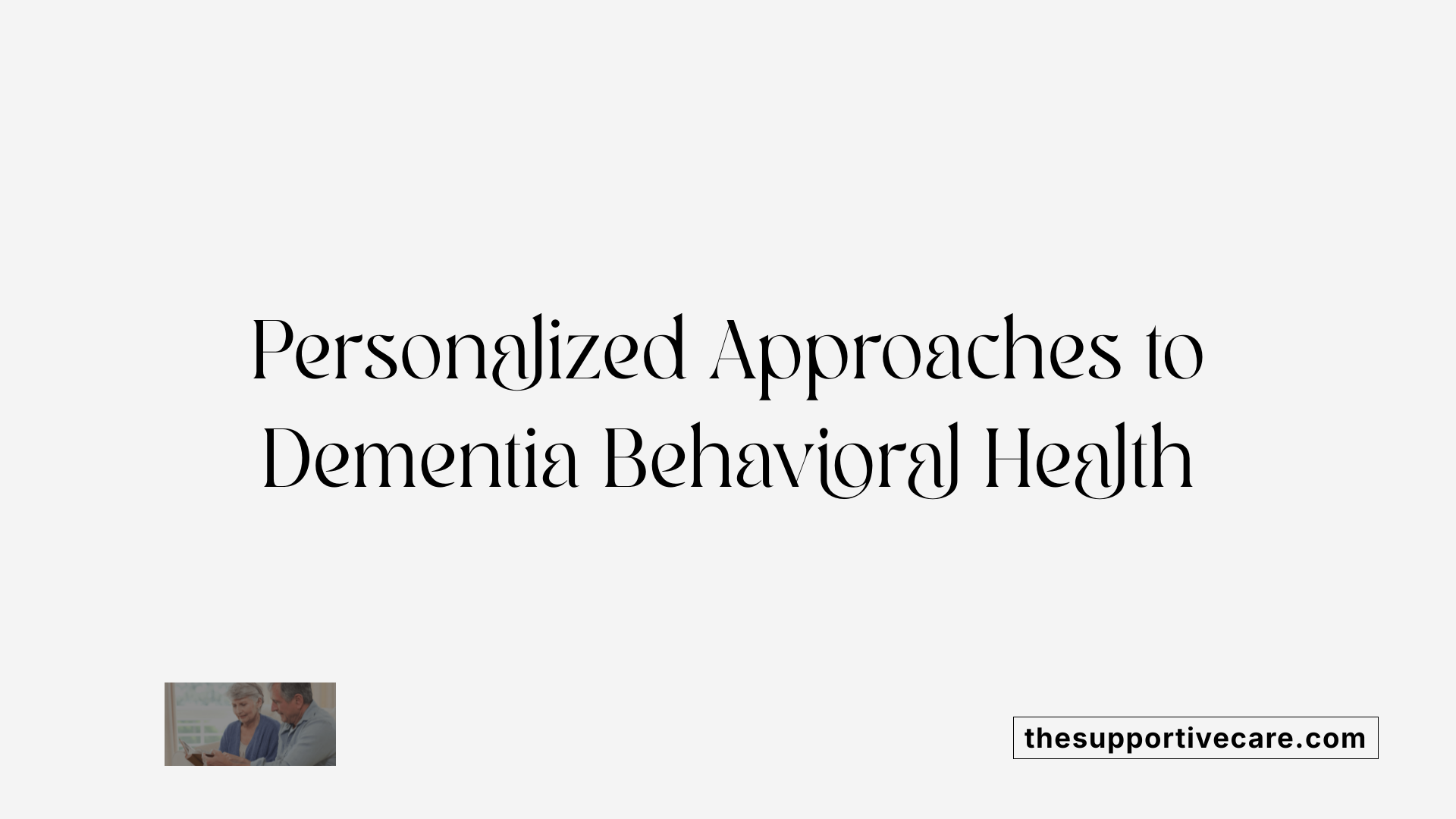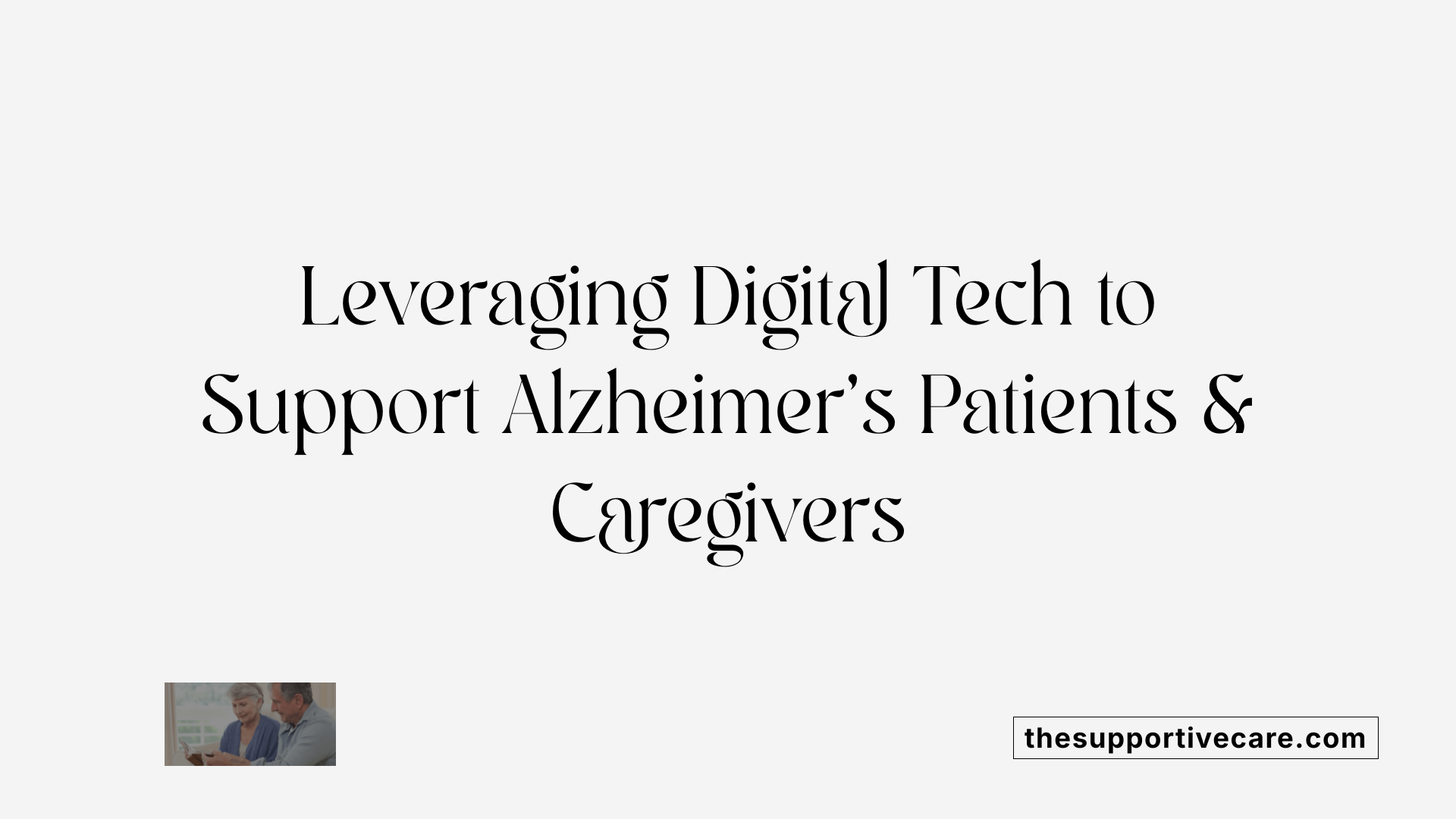Understanding the Landscape of Behavioral Health in Alzheimer's Disease
Managing Alzheimer's disease effectively requires comprehensive tools that cater to diagnosis, ongoing assessment, behavioral interventions, and caregiver support. Advances in assessment methods, digital technology, and evidence-based care models have transformed how healthcare professionals and caregivers approach dementia management, aiming to improve quality of life and delay progression.
Standardized Measures for Quality Dementia Care
 In 2016, the American Academy of Neurology and the American Psychiatric Association developed the Dementia Management Quality Measurement Set. This set includes nine evidence-based metrics that help healthcare providers evaluate and improve the quality of dementia care. These metrics cover various aspects such as disclosure of diagnosis, caregiver education, functional assessment, behavioral and psychiatric symptoms, safety screening, driving safety, advance care planning, pain management, and appropriate medication use.
In 2016, the American Academy of Neurology and the American Psychiatric Association developed the Dementia Management Quality Measurement Set. This set includes nine evidence-based metrics that help healthcare providers evaluate and improve the quality of dementia care. These metrics cover various aspects such as disclosure of diagnosis, caregiver education, functional assessment, behavioral and psychiatric symptoms, safety screening, driving safety, advance care planning, pain management, and appropriate medication use.
Clinical quality metrics derived from these standards guide providers in delivering consistent, evidence-based care. They also assist in tracking patient outcomes, ensuring that care plans are tailored to individual needs, and identifying areas for improvement.
Assessment data play a vital role in developing personalized care strategies. Brief cognitive screening tools like the AD8 Dementia Screening Interview, Mini-Cog, NIH Toolbox®, IQCODE, QDRS, and TabCAT help detect early signs of cognitive decline. These tools are quick to administer, often taking less than five minutes, and are suitable for use by primary care staff and non-physicians, facilitating early detection and intervention.
When screening results suggest possible impairment, they prompt further comprehensive evaluations or referrals to specialists. This approach ensures timely diagnosis and management, ultimately enhancing patient and caregiver outcomes.
Healthcare professionals use various guidelines and resources, such as the Assessment of Cognitive Complaints Toolkit and CMS Cognitive Assessment & Care Plan Services, to support diagnosis and ongoing management. Additionally, specialized tools are available for diagnosing specific dementia types, like Lewy Body Dementia and Frontotemporal Disorders.
Educational programs and training curricula, including modules from HRSA and university courses, are designed to improve clinician knowledge and skills in dementia care. Patient education resources from ADEAR Center and Alzheimers.gov provide valuable information on disease understanding, safety, and caregiving.
Supporting the integration of digital health, remote monitoring, and telehealth technologies enhances care delivery, makes assessments more accessible, and enables continuous monitoring of behavioral and cognitive changes. These advancements contribute to more personalized and effective management of dementia, aligning with best practice standards and improving overall quality of care.
Tools for Cognitive and Psychological Assessment

Which cognitive and psychological assessment tools are used in diagnosing and monitoring Alzheimer's disease?
Disease diagnosis and monitoring rely on a variety of cognitive assessment tools that evaluate different aspects of brain function. Commonly used tests include the Mini-Mental State Examination (MMSE) and the Montreal Cognitive Assessment (MoCA), which measure memory, attention, language, and visuospatial skills. The Alzheimer's Disease Assessment Scale-Cognitive Subscale (ADAS-Cog) provides a detailed evaluation of cognitive decline specific to Alzheimer’s.
In primary care settings, quick screening tools like the Mini-Cog, GPCOG, Memory Impairment Screen, and the Saint Louis University Mental Status Exam (SLUMS) are frequently employed for early detection and deciding whether further evaluation is necessary. These tools can usually be completed in under five minutes and are designed for non-specialists.
Informant-based assessments such as the AD8 Dementia Screening Interview and the IQCODE gather behavioral and functional insights from family members or caregivers. These help differentiate dementia from normal aging and are useful in both clinical and research settings.
Emerging digital and remote assessment technologies are expanding access to cognitive screening. FDA-approved tools like Cognivue and CANTAB Mobile® can be administered via tablets or online platforms, facilitating screening outside traditional clinics, especially through telemedicine. These tools are validated to detect early cognitive changes and are intended for use by healthcare providers or trained non-physician staff.
Additional diagnostic methods include neuroimaging techniques, such as MRI and PET scans, which visualize brain structure and pathology. Fluid biomarkers derived from cerebrospinal fluid or blood tests further support diagnosis and track disease progression.
| Assessment Tool Name | Type | Usage Context | Notes |
|---|---|---|---|
| Mini-Mental State Exam (MMSE) | Paper-based | Clinical, primary care | Widely used for general cognitive screening |
| Montreal Cognitive Assessment (MoCA) | Paper-based/Electronic | Cognitive screening | Sensitive for mild impairment |
| ADAS-Cog | Standardized test | Alzheimer’s research & clinical trials | Measures cognitive severity |
| Mini-Cog | Short screening | Primary care, quick screening | Less than 5 minutes |
| GPCOG | Questionnaire | Primary care | Combines patient and informant input |
| Memory Impairment Screen | Brief test | Primary care, quick assessments | Focuses on memory |
| AD8 | Informant interview | Family- or caregiver-based | Differentiates dementia from normal aging |
| IQCODE | Informant questionnaire | Monitoring cognitive change over time | Used in research and clinical settings |
| Cognivue | Digital app | Telehealth, screening | FDA-cleared digital cognitive test |
| CANTAB Mobile® | Digital cognitive battery | Research, clinical use | Portable, easy to administer |
This combination of traditional, informant, and digital tools allows clinicians to efficiently identify early cognitive decline, enabling timely intervention and personalized care.
Behavioral Strategies and Assessment in Dementia Care

What strategies and assessment methods are effective for behavioral health in dementia care?
Managing behavioral health issues in dementia patients involves a combination of personalized management plans and supportive environmental modifications. Successful approaches are grounded in understanding each individual’s unique triggers and patterns of behavior.
Person-centered management is crucial. This involves tailoring interventions to the person's history, preferences, and current needs. Caregivers and healthcare providers are trained in communication techniques, focusing on empathy, patience, and validation. Implementing routines and meaningful activities helps reduce anxiety and agitation, providing structure and purpose.
Environmental changes can significantly impact behavior. Reducing overstimulation, managing noise levels, and creating calm, predictable spaces can help prevent behavioral outbursts. Sensory stimulation therapies, such as music, touch, or aroma therapy, are beneficial in engaging patients gently.
Assessment frameworks play a vital role in identifying underlying causes of behavioral symptoms. Tools such as behavioral rating scales, direct observation, and functional analysis help understand triggers and the environmental or physiological factors involved.
One effective model is the DICE framework (Describe, Investigate, Create, Evaluate). It guides clinicians and caregivers through systematically describing behaviors, investigating potential causes, creating tailored interventions, and evaluating their effectiveness over time.
Regular monitoring and flexible application of strategies ensure that management adapts to changing needs. While pharmacologic treatments like antipsychotics or antidepressants may be employed, they should be used cautiously and always within an individual care plan to minimize adverse effects.
In summary, combining person-centered, environmentally sensitive, and assessment-driven approaches offers the best outcomes for behavioral health in dementia care, emphasizing safety, dignity, and quality of life.
Digital Technologies Supporting Alzheimer's Caregivers and Patients

How are digital health technologies supporting Alzheimer's patients and their caregivers?
Digital health innovations have become essential in managing Alzheimer's disease and supporting caregivers. These technologies encompass a wide range of tools designed to improve disease monitoring, enhance safety, and foster social connections.
One significant aspect is remote monitoring. Wearable devices and GPS-enabled apps help track patients’ movements, alerting caregivers about wandering or falls and ensuring safety. Telehealth platforms facilitate virtual consultations, allowing healthcare providers to perform remote cognitive assessments, monitor symptoms, and adjust treatment plans without the need for in-person visits.
Cognitive training and brain games delivered through digital applications help stimulate mental activity. These tools are tailored to maintain and possibly improve brain function, potentially slowing disease progression. Examples include brain exercises and computerized games that assess and enhance processing speed and memory.
Safety and communication are further supported by digital tools. Voice-activated assistants, visual alerts, and customizable notifications aid patients in daily routines, while digital educational resources provide caregivers with vital knowledge. Support platforms, including social apps and virtual support groups, connect caregivers and patients, reducing feelings of isolation and offering community support.
Innovative systems like AI-powered agents and digital biomarkers provide personalized guidance and early detection signals, improving early intervention opportunities. Wearables and GPS trackers specifically help monitor wandering behaviors, providing real-time data to caregivers for prompt responses.
In summary, digital health technologies address multiple needs—safety, cognitive health, emotional support, and education—empowering caregivers and enhancing the quality of life for those affected by Alzheimer's. These tools are transforming traditional care, making it more accessible, personalized, and proactive.
Research and Support Programs in Dementia Care
What does current research say about behavioral health interventions in Alzheimer's disease?
Recent studies highlight the crucial role of behavioral and lifestyle strategies in managing Alzheimer's disease. Researchers are actively exploring various approaches, such as cognitive training exercises, physical activity programs, healthy diets, and social engagement activities. These interventions aim to improve cognitive function, enhance quality of life, and slow disease progression.
Evidence from numerous clinical trials indicates that personalized behavioral therapies and caregiver education can effectively reduce neuropsychiatric symptoms and delay the need for institutional care. For example, cognitive training tools, including computer-based brain games, are being tested for their ability to accelerate brain speed and improve mental functions in early stages of cognitive decline.
Besides direct training, behavioral approaches often include environmental modifications and coping strategies tailored to individual needs. Combining such non-pharmacological methods with medical treatments offers a comprehensive approach to care.
Current research also investigates the influence of motivation and social support in encouraging healthy behaviors such as regular exercise and blood pressure control. These lifestyle changes have shown promise in preventing or delaying cognitive impairment.
Ongoing clinical trials are examining various multicomponent interventions, trying to identify the most effective methods to support individuals at risk of or living with Alzheimer’s. Overall, integrating behavioral strategies with pharmacological treatments remains a focus, with the goal of improving patient outcomes and minimizing caregiver strain.
This evolving research landscape underscores the importance of holistic, personalized care planning that emphasizes both medical and behavioral management strategies to combat dementia progression.
Harnessing Innovation in Dementia Care
The integration of advanced assessment tools, personalized behavioral interventions, digital health technologies, and comprehensive professional training has significantly enhanced outcomes in Alzheimer’s disease management. As ongoing research continues to uncover effective strategies and innovative solutions, the future of dementia care lies in tailored, holistic approaches that prioritize patient well-being, caregiver support, and evidence-based practices to ensure a better quality of life for millions affected by the disease.
References
- A set of tools for providing better dementia care
- Alzheimer's and Related Dementias Resources for ...
- Cognitive Assessment Tools
- 9 Innovative Ways Digital Health Tools Can Support ...
- Telehealth for Alzheimer's disease
- Resources for Health Care Providers
- Guiding an Improved Dementia Experience (GUIDE) Model


































































































